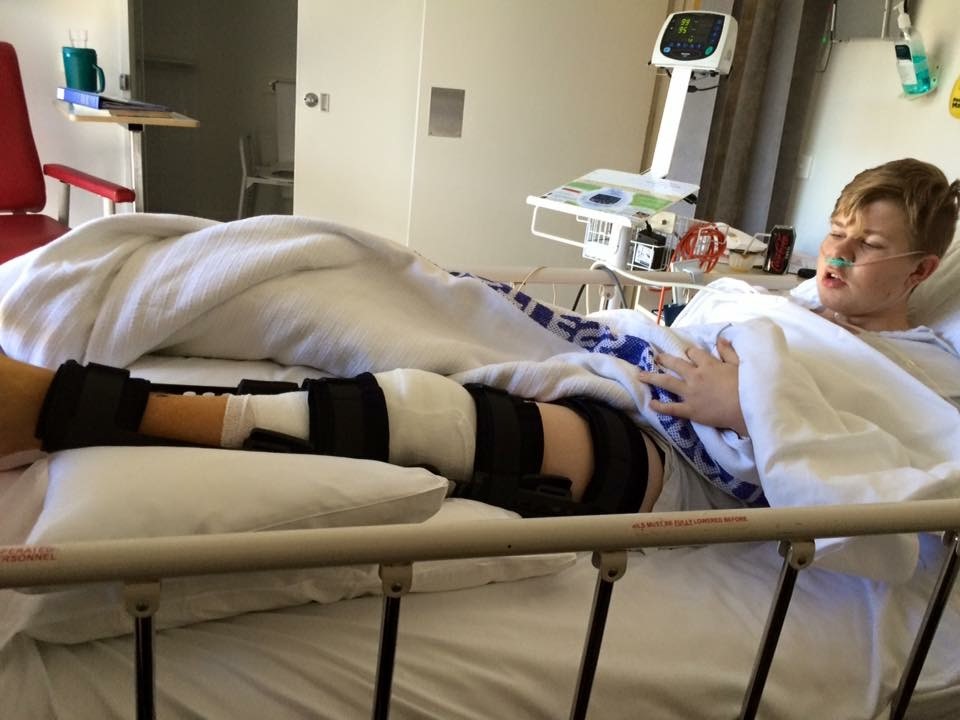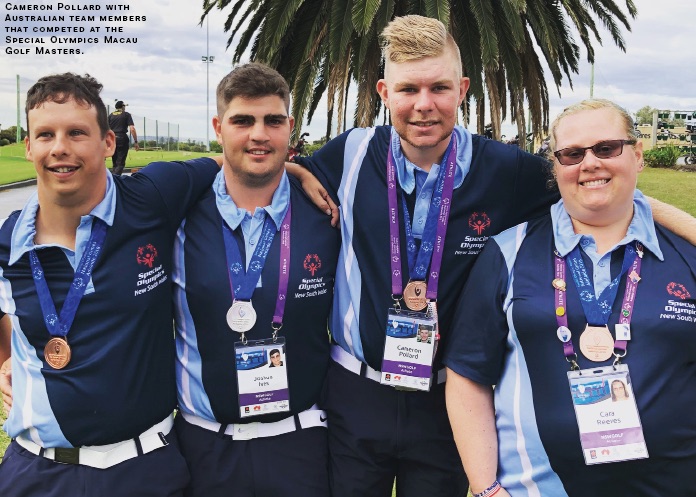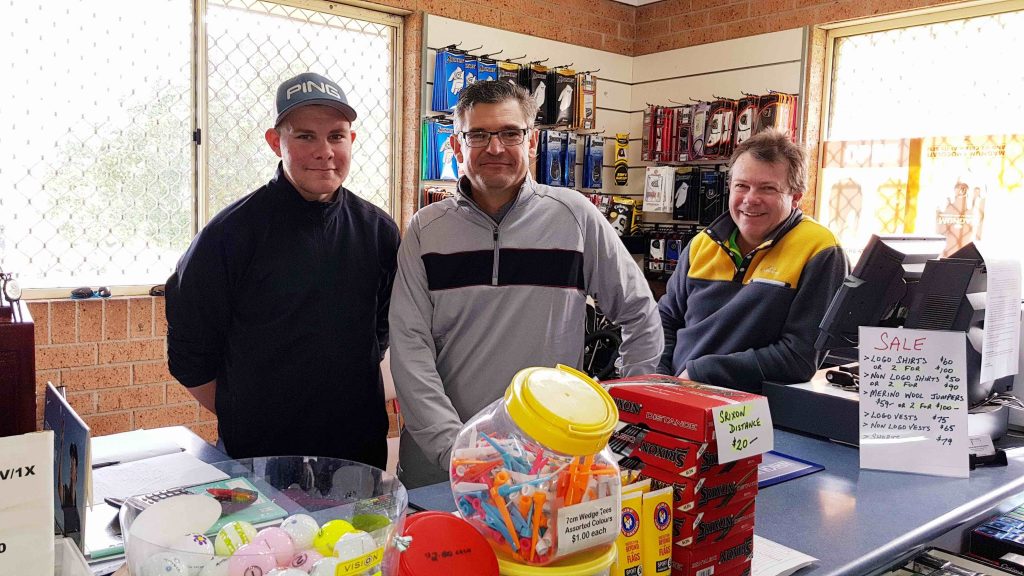After Cameron Pollard returned home from representing the Australian team at the 2016 Special Olympics Macau Golf Masters he spent the following four months in hospital.
Panic attacks that emerged prior to leaving Australia – initially because his favourite hairdresser wasn’t available – manifested into attacks so severe that his throat would close up, he’d pass out and crash to the ground.
It took four months to get him back on his feet and keep him there.
Cameron had to be sedated simply to get him on the plane and spent a week in Macau distressed that his staple beverage of either Powerade or Gatorade had to be replaced by vitamin water.
In hindsight, taking an autistic 17-year-old who eats nothing but hot chips to a foreign country was always going to exacerbate the anxiety Cameron has felt virtually his entire life. His mother Kate now knows that, but the fact they could even contemplate such a journey was a major milestone in its own right.

“We couldn’t even get him on an aeroplane. For us to get him to go to Hong Kong … to think that he was going to travel internationally and cope in a foreign country …” Kate says, still in a state of disbelief.
“Even now, if he’s not coming to the golf course, he doesn’t generally leave the house.”
“I only just made it,” Cameron adds of his Macau adventure with the slightest hint of an upturned grin in the creases of the left-side of his mouth.
He finished fourth at Caesars Golf Macau because the golf course is Cameron’s happy place, and he can play.
A 4-marker from Sawtell Golf Club on the New South Wales Mid North Coast, Cameron’s introduction to golf came as it did for many other boys – through his father, two-time club champion Scott Pollard.
But as it emerged that Cameron had significant medical issues – he essentially has no bowel and has a condition that makes his joints unstable to the point that it has necessitated two knee reconstructions – playing the game he inherently loved was problematic.
Not to mention the fact that his place on the autism spectrum and lack of a social filter often made interactions with playing partners uncomfortable ones.
“The first 12 months to two years of playing with the members on a Saturday, a lot of guys avoided playing with him,” reveals Sawtell head professional and Special Olympics golf coach Brendan Barnes.

“He would play and just say whatever came to him. He’d tell someone he was playing with that they were awful. And it really upset a few people.”
Adds Kate: “We wouldn’t let him go out and play with other people because we didn’t want them to feel like they were going out to play with some bratty kid.
“Scott would always play with him and then people started saying that he could come with them. That community within the golf club took him on, which was really nice to see.”
In fact, the autism that effectively confines Cameron to either his bedroom or a golf course has proven to be something of a competitive advantage.
Having finished dead last in each of the three previous club championships in which he had played, Cameron went into the final round of this year’s Sawtell championships a shot behind after leading through 36 holes.
But as more mature and experienced members fronted up on the Sunday visibly affected by the pressure of the club’s most prestigious board event, Cameron fell into the routine that provides a level of comfort before every round of golf.
“I have a thing where I walk into the clubhouse, get a drink, walk outside, walk back in the clubhouse, sit down for a minute, get up, walk back outside and I’ll do the same thing about five times,” says Cameron.
“I’ll annoy Brendan twice in the pro shop and then have a putt, and then go to the first tee.”
“Cameron has no filter and simply sees golf as golf,” Barnes explains. “So even though he wanted to win, his process was that he was going out to play golf and I’m going to win. He didn’t care.
“We had a gentleman who is in his 60s shaking like a leaf before he got onto that first tee. He was acting like he was OK but he wasn’t.
“Even our previous club champion, who is a good low marker and has won it a few times, he was going through some demons in his golf game and you could see that was affecting him, even though he had a one-shot lead over Cameron.”

The measured ritual served Cameron well – as did his habit of chewing on golf gloves which, while expensive for his parents, has a soothing effect. Cameron went on to claim the title of club champion by eight shots with a round of 70.
Golf’s influence in the Pollard family stretches far beyond their deeds on the course For Cameron, it has provided purpose in a life that is beset by complications. He eats because he knows he should, not because he derives any pleasure from it. When he was moved out of conventional schooling in favour of life skills such as cooking, cleaning and shopping, he simply withdrew and refused to engage. His only interest is golf and, where there was once uncertainty about what life in the workforce might look like for Cameron, he is now in the process of making a career out of the game.
Under the supervision of Barnes his duties have expanded from washing golf carts to assisting in the pro shop, announcing the member number and associated handicap as golfers pull into the car park.
He has completed both the PGA/Golf Australia’s Community Instructor and Swing Fit courses, and assists Barnes with the programs he runs for juniors and those with intellectual disabilities.
“Golf’s been a godsend for him because he has had so many challenges,” says Kate. “All the things that could potentially stop somebody, he’s fought through it and progressed because this is what he wants to do.
“All through high school there was the concern of what life was going to look like when he finished. Where would he end up? What would he do?
“Now we don’t even think about it because there’s a place for him.”
A place created by the game of golf.




